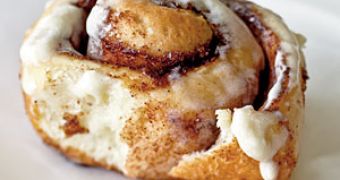Cinnamon lovers are outraged after the European Union threatened to ban the spice from its member states due to a toxic chemical found in the delightful ingredient. The proposed project concerning the spice ban was accused of trying to outlaw traditional pastries like the cinnamon roll.
With cinnamon being at its popularity peak in the winter holiday season, the news came as a national offense for Denmark, as the country's traditional desserts include considerable amounts of spices. The cinnamon roll, or kanelsnegler like the Danish call it, has a special place in Copenhagen's history as it holds a long-standing tradition.
The new European Union regulations concern one particular chemical called coumarin and found in the most popular form of cinnamon, cassia. This popular form of spice used all over the European continent contains a big amount of the chemical that can cause dietary problems.
The project states that the special spice may be used just in limited quantities and it mostly affects Danish bakers who use high levels of cinnamon in their traditional pastries. The cinnamon rolls have been baked in Northern European countries for more than 200 years and the ban is considered the end of a dear tradition.
“An average person would have to eat so many Danish pastries in order to be affected, they would certainly die of obesity before being hurt by a low level of cinnamon,” Paul Nuttall, says according to Daily Mail. The leader of UK's Independence Party also added that people didn't need the EU to act as a babysitter and tell them what not to eat on Christmas.
The regulations appear to be kind of bogus as a study revealed that the “tolerable daily limit” of cinnamon accepted by the European Union is higher than the actual intake of the population. The coumarin exposure doesn't present itself as a problem and, in order to actually raise health questions, one should really overindulge in cinnamon pastries, which is more than unlikely.

 14 DAY TRIAL //
14 DAY TRIAL //